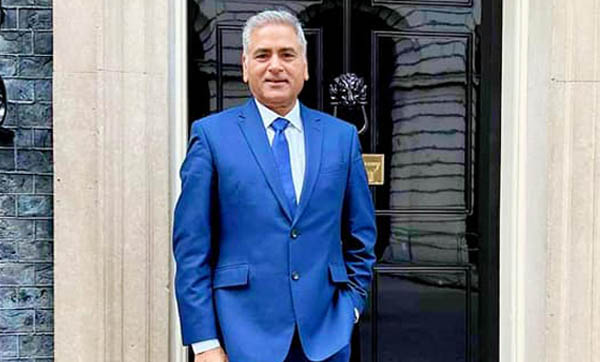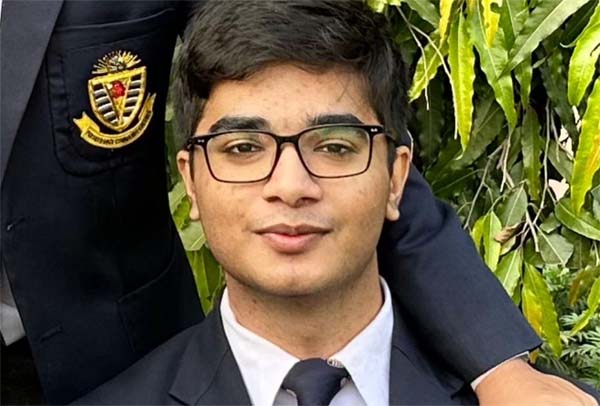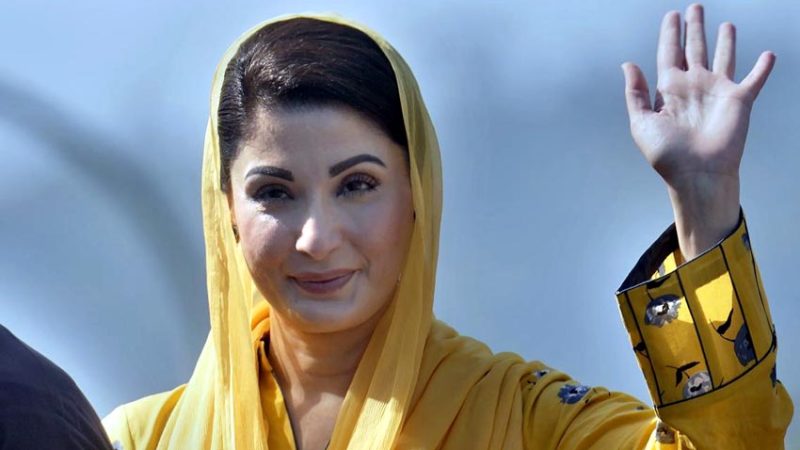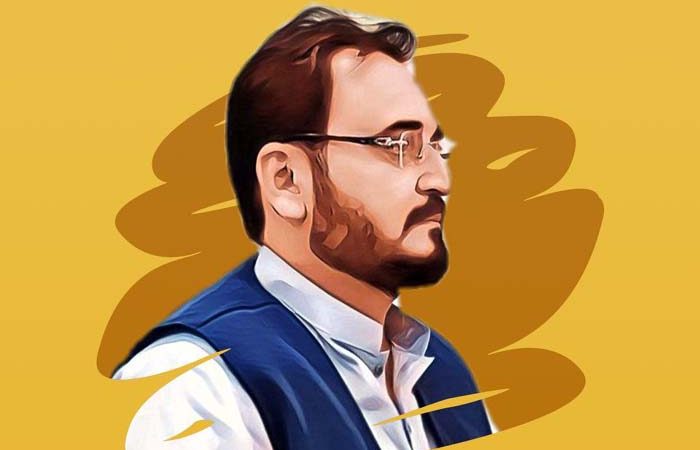PML-N: A Formidable Political Force in Pakistan

PMLN is shaping the future of our country with courage and conviction
By Dr Ashraf Chohan
Chairman PMLN UK
The Pakistan Muslim League-Nawaz (PML-N) stands as one of the most formidable political parties in the country’s history. With a legacy of strong leadership, a track record of development, and a commitment to the progress of Pakistan, PML-N has consistently worked towards the betterment of the nation.
Through resilience and dedication, PML-N has weathered challenges and emerged stronger, guided by a vision of prosperity, stability, and a future that benefits all Pakistanis. The unwavering support of its members and the trust of the people continue to fuel its efforts for a better Pakistan.
The Pakistan Muslim League-Nawaz (PML-N) under the leadership of Nawaz Sharif has had significant influence on Pakistan’s political landscape. Nawaz Sharif served as Prime Minister of Pakistan for three non-consecutive terms: 1990-1993, 1997-1999, and 2013-2017. Here are some key achievements associated with PML-N under his leadership:
- Economic Growth (2013-2017) • During Nawaz Sharif’s third term, Pakistan witnessed steady economic growth. The GDP growth rate reached around 5.4% in 2016-17, the highest in nearly a decade. • Inflation remained relatively low, and foreign exchange reserves increased to record levels. The stock market also saw significant growth. • Under his government, the country completed its first successful International Monetary Fund (IMF) program since 2001.
- Infrastructure Development • Motorway Expansion: Nawaz Sharif is credited with the construction of Pakistan’s first modern motorway (M2), linking Lahore and Islamabad, during his second term. He also expanded the motorway network during his third term, including the Lahore-Abdul Hakeem section of the M3 and others. • Energy Projects: The PML-N government worked on tackling Pakistan’s energy crisis. It initiated several energy projects including power plants and hydroelectric projects, which helped reduce electricity shortages. The government completed or initiated projects like the Neelum-Jhelum Hydropower Project, the Sahiwal Coal Power Plant, and others.
- China-Pakistan Economic Corridor (CPEC) • One of the landmark achievements of the PML-N under Nawaz Sharif was the formal launch of the China-Pakistan Economic Corridor (CPEC) in 2015. This multi-billion dollar project is part of China’s Belt and Road Initiative and includes investments in infrastructure, energy, and industrial development in Pakistan. CPEC is expected to enhance trade and connectivity between Pakistan and China and is considered a game-changer for Pakistan’s economy.
- Nuclear Tests (1998) • In response to India’s nuclear tests in May 1998, Nawaz Sharif made the historic decision to conduct nuclear tests (Chagai-I and Chagai-II) in the same year, making Pakistan the first Muslim-majority country and the seventh in the world to possess nuclear weapons. This move enhanced Pakistan’s defence capabilities and bolstered national pride, despite international sanctions.
- Law and Order and Counter-Terrorism Efforts • Under Nawaz Sharif’s leadership, the government launched Operation Zarb-e-Azb in 2014, a military offensive aimed at eliminating terrorism, particularly in the tribal areas of Pakistan. The operation significantly weakened militant groups, including the Tehrik-i-Taliban Pakistan (TTP). • His government also supported the establishment of military courts and implemented the National Action Plan (NAP) after the Peshawar school attack in 2014, strengthening the country’s counter-terrorism efforts.
- Social Programs • Metro Bus Projects: The PML-N government initiated metro bus services in cities like Lahore, Rawalpindi-Islamabad, and Multan to provide affordable public transport. These projects were well-received for improving urban mobility. • Health and Education Reforms: Initiatives like the Punjab Educational Endowment Fund (PEEF) and Prime Minister’s Health Insurance Program (for underprivileged communities) were launched during Nawaz Sharif’s tenure. Though these were provincial initiatives, their impact at the federal level was also significant.
- Privatization and Economic Reforms • During his second and third terms, Nawaz Sharif pursued privatization of state-owned enterprises to reduce losses and improve efficiency. Privatization of banks, industrial units, and telecommunications (PTCL) were some of the key examples.
- Foreign Relations • Nawaz Sharif made efforts to improve relations with neighbouring countries, particularly India and Afghanistan, though these efforts were often hampered by external and internal pressures. His attempts to restart the peace process with India during the 1999 Lahore Declaration, and later in 2013-2017, highlighted his inclination toward diplomacy.
- Judicial Reforms • During his third term, Nawaz Sharif’s government was instrumental in passing laws to ensure the independence of the judiciary and to curb corruption. His government’s judicial reforms included reforms aimed at speeding up the legal process and reducing case backlogs.
Despite these achievements, Nawaz Sharif’s tenures were shortened leading to his dismissal in 1993, 1999 (through a military coup), and 2017 (following a Supreme Court ruling related to the Panama Papers case). However, his legacy, particularly in infrastructure and economic reforms, continues to shape Pakistan’s development trajectory.
MNS played an important role in post Imran era too. PTI govt ended as a result on vote of no confidence. PML N risked its political position by taking over the reign of government when economy was at the verge of collapse.
Nawaz Sharif is likely to continue to play his role for Pakistan in the years ahead
During his tenure as Prime Minister of Pakistan, Mr. Shehbaz Sharif hasdemonstrated strong leadership and a commitment to addressing key challenges facing the nation. His achievements reflect his dedication to economic stability, infrastructure development, and improving the well-being of the people.
- Economic Stabilization: Despite inheriting a struggling economy, Shehbaz Sharif took immediate steps to stabilize the country’s finances. Through decisive actions, he worked to curb inflation, improve foreign reserves, and restore investor confidence.
- Energy Sector Reforms: Recognizing the energy crisis in Pakistan, Shehbaz Sharif focused on increasing power generation and expanding renewable energy projects. His policies helped reduce load shedding and laid the foundation for a more sustainable energy future.
- Infrastructure Development: Known for his focus on infrastructure, Shehbaz Sharif continued his legacy by prioritizing the construction of new roads, bridges, and public transport systems, which are vital for economic growth and improving citizens’ daily lives.
- Health and Education Initiatives: Shehbaz Sharif’s government invested in healthcare and education, ensuring better access to medical facilities and quality education, particularly for underprivileged communities.
- Diplomatic Engagement: He also focused on strengthening Pakistan’s international relationships, fostering closer ties with key allies, and promoting trade and diplomatic engagement on the global stage.
- Disaster Relief and Response: His administration was quick to respond to natural disasters, particularly the devastating floods, by mobilizing resources for relief and rehabilitation efforts, ensuring aid reached those most affected.
Under Shehbaz Sharif’s leadership, Pakistan took steps toward recovery and growth, with his efforts reflecting his enduring commitment to public service and national progress.
As we look ahead, the strength of PML-N lies in its unity, its leadership, and its deep connection with the people of Pakistan.







